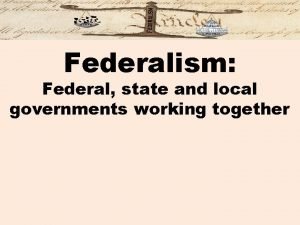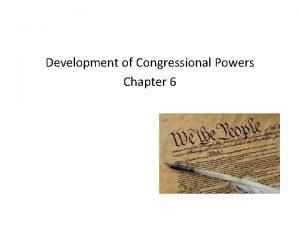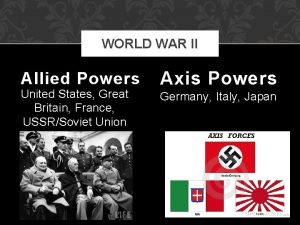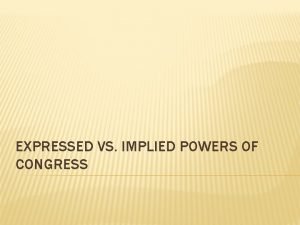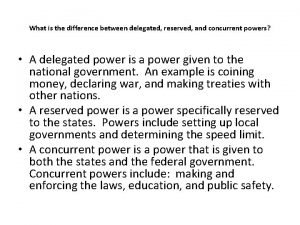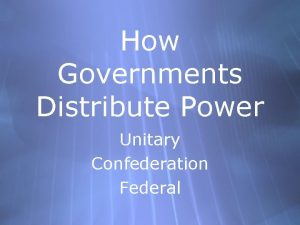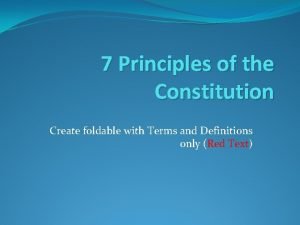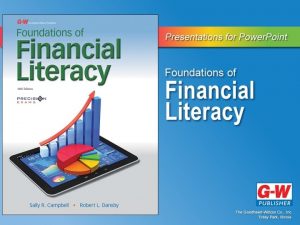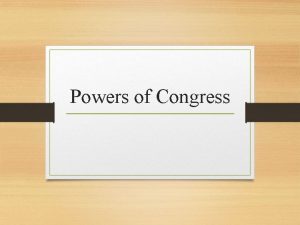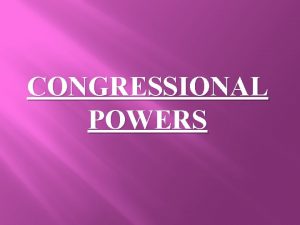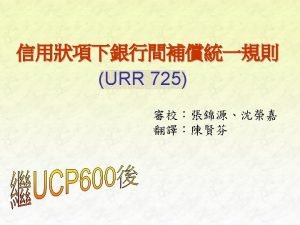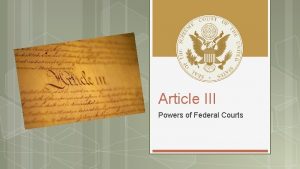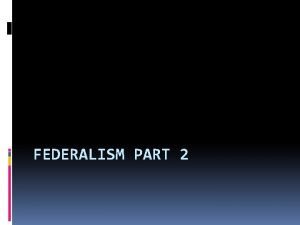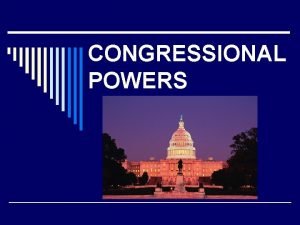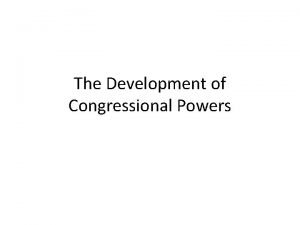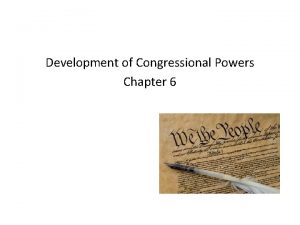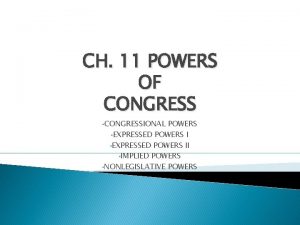Article I Part II Congressional Powers Federal Government













- Slides: 13

Article I Part II: Congressional Powers

Federal Government Power TYPE KEY CLAUSE Enumerated (expressed) Implied Reserved DEFINITION Article I, Section 8 EXAMPLES Declare war, coin Powers explicitly money, levy taxes, granted to Congress regulate interstate commerce Powers that Regulate Necessary and proper Congress has telecommunications, build interstate (Article I, Section 8) assumed in order to highways better do its job 10 th Amendment Powers that the Constitution does Marriage/divorce, not give to the education, national state/local elections, government and are drivers’ license kept by the state

Scope of Congressional Power Ever since the Constitution was written the question of Congress’ power has been debated… Strict Interpretation Laws should be created in Liberal Interpretation strict accordance with Constitution Best government is one that governs least Use only expressed powers and implied powers only when necessary Laws should be created in light of social/political conditions with a broad view of the Constitution Good government is an active one Winning side: Congress has more power today then the Framers intended

The Implied Powers of Congress: Strict v. Liberal


Non-Legislative Powers Choose the President if no candidate reaches majority of electoral votes Happened twice: 1800 and 1824 elections Power to impeach and remove government officials 2 Presidents have been impeached, but not removed (Johnson and Clinton) Senate confirms all presidential appointments and ratifies treaties (2/3 rds vote)

Congressional Oversight Goal of oversight is to see how well the Executive Branch is enforcing laws passed by Congress can create special committees to investigate conduct in any of the three branches i. e. Benghazi, JFK assassination, etc. Committees issue reports and Congress acts based on information in reports Sometimes uses “power of the purse” to cut off funding in response to report findings

Congressional Support Agencies Library of Congress stores and collections historical information that can be requested by Congress and citizens Congressional Budget Office (CBO) Coordinates budgets, studies budget proposals and tracks spending of all government branches General Accounting Office (GAO) Monitors Congressional spending

Powers Forbidden to Congress Article I Section IX Cannot deny citizens of Writ of habeas corpus Individual cannot be arrested and jailed indefinitely without charges No ex post facto laws or bills of attainder (no trial) No granting of titles of nobility or imposing religious tests for government positions

Article I – Section X States can not enter into alliances with other states/foreign powers or coin money States can not impose import duties on a foreign product States cannot keep militia or engage in war without consent of Congress

Legislative Checks on Executive Branch Has authority to impeach the President and other Executive Branch officials Senate must approve of treaties and Presidential nominations Controls appropriations of Executive Branch spending Power to Declare War Selection of President and Vice President if no majority in Electoral College


Legislative Checks on Judicial Branch Approval of all federal judges through confirmation hearings Can increase or decrease the size of the Supreme Court Can pass amendments to overrule Supreme Court decisions Impeachment process of judges Sets jurisdiction of courts
 What are the three levels of government
What are the three levels of government Congressional powers
Congressional powers Development of congressional powers chapter 6 answer key
Development of congressional powers chapter 6 answer key Development of congressional powers chapter 6 answer key
Development of congressional powers chapter 6 answer key Was the united states on the axis powers or allied powers?
Was the united states on the axis powers or allied powers? List the allied powers and the central powers
List the allied powers and the central powers Express vs implied powers
Express vs implied powers Enumerated vs implied
Enumerated vs implied Non legislative powers of congress
Non legislative powers of congress How do delegated reserved and concurrent powers differ
How do delegated reserved and concurrent powers differ Presidential powers informal or implied powers
Presidential powers informal or implied powers Federal government meaning
Federal government meaning Federal government definition
Federal government definition Federal government primary source of revenue
Federal government primary source of revenue
